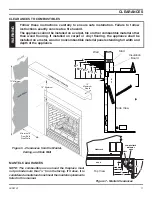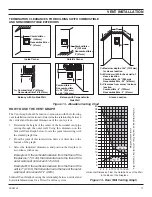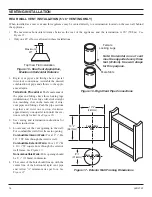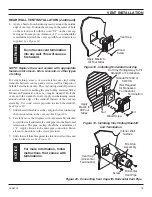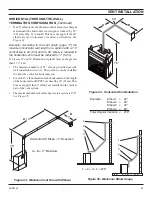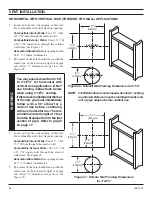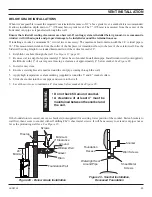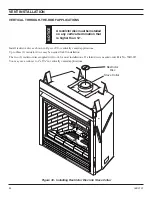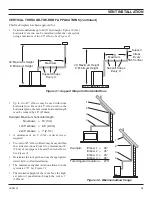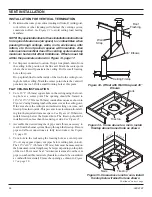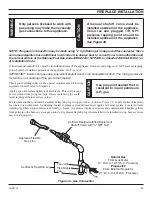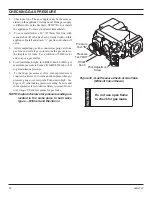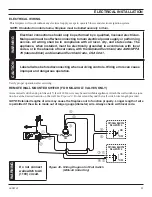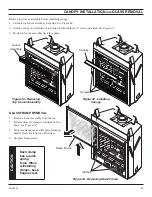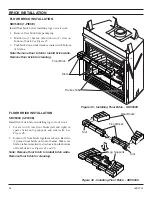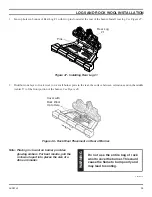
20
56D2161
VENT INSTALLATION
HORIZONTAL WITH VERTICAL RISE (THROUGH-THE-WALL) TERMINATION CONFIGURATIONS
Since it is very important that the venting system maintain its balance between the combustion air intake and the flue
gas exhaust, certain limitations as to vent configurations apply and must be strictly adhered to.
The Vent Graph, showing the relationship between vertical and horizontal side wall venting, will help to determine the vari-
ous dimensions allowable.
See page 17.
Minimum clearance between vent pipes and combustible materials is 3" on top and 1" from bottom and sides unless
otherwise noted
(Exception: Outside wall with firestop: 1" all around pipes are allowed)
.
When vent termination exits through foundations less than 20" below siding outcrop, the vent pipe must flush up with
the siding.
It is best to locate the fireplace in such a way that minimizes the number of offsets and horizontal vent length.
The horizontal vent run refers to the total length of vent pipe from the flue collar of the fireplace (or the top of the transition
elbow) to the face of the outer wall or the mounting flange of the termination.
Figure 21 - Maximum Three (3) 90° Elbows
Per Installation
• The maximum number of 90° elbows per side wall installation is three (3).
See Figure 21.
• If a 90° elbow is fitted directly on top of the fireplace flange, the maximum horizontal vent run before the termination
or a vertical rise is 36" (914mm).
See Figure 22.
Figure 22 - Maximum Horizontal Run with No Rise
3 x 90°
Elbows
3 x 90°
Elbows
WARNING
When installing the appliance as a rear vent unit, the 90° 45° transition elbow
attached directly to the rear of the unit is NOT INCLUDED in the following criteria and
calculations, and unless specifically mentioned should be ignored when calculating
venting layouts.
36"
Max.
36"
Max.






